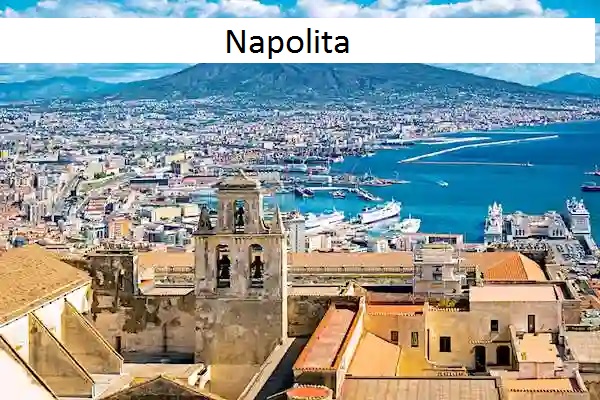In the enchanting Southern Italian region of Campania lies a city rich in culture, history, and, of course, mouthwatering cuisine. Naples, or Napoli in Italian, is not only famous for its iconic pizza but also for its unique dialect known as Napolità. In this article, we will delve into the fascinating world of Napolità by exploring its origins, characteristics, and significance in Neapolitan culture.
Origins of Napolità
Napolità, also known as Neapolitan, is a Romance language derived from Vulgar Latin. It has been spoken in Naples and the surrounding areas for centuries, and its roots date back to the Greek and Roman influences that shaped the region.
This vibrant dialect developed organically as a result of Naples’ position as a bustling maritime city, attracting numerous cultures and languages over time. The fusion of Greek, Latin, Spanish, French, and Arabic influenced the formation of Napolità, infusing it with its distinct phonetics, vocabulary, and grammar.
Characteristics of Napolità
This is renowned for its melodic, singsong-like quality. The dialect is characterized by its distinct pronunciation, rhythm, and intonation, which sets it apart from standard Italian.
Here are some key characteristics of Napolità:
- Unique Phonetics: It has its own set of sounds, many of which are not present in other languages. It is known for merging certain consonant sounds and rolling the ‘r’ extensively.
- Vibrant Vocabulary: It features a vast vocabulary that differs from standard Italian. It incorporates numerous loanwords and colloquial expressions specific to the Neapolitan culture.
- Simplified Grammar: It has a simplified grammar compared to Italian, with deviations in verb conjugation, pronouns, and word order.
Significance of Napolità in Neapolitan Culture
It holds deep cultural significance for the people of Naples. It is not merely a language but a way of life, representing their identity, resilience, and pride.
Here are several aspects highlighting the significance of Napolità in Neapolitan culture:
- Preservation of Traditions: It serves as a medium for passing down Neapolitan traditions, customs, and folk performances from one generation to another.
- Social Bonding: Speaking Napolità often fosters a sense of camaraderie and intimacy among Neapolitans, fostering strong connections within the community.
- Art and Literature: Many iconic Neapolitan songs, poems, and novels are written in Napolità, adding to the cultural wealth of the city and nurturing local artistry.
Napolità and its Influence on Italian
Despite Italy’s official language being Italian, It has left an indelible mark on the nation’s linguistic landscape.
Here are a few ways in which Napolità has influenced the Italian language:
- Lexical Borrowing: Numerous words from Napolità have made their way into standard Italian, enriching its vocabulary.
- Expressions and Idioms: Certain expressions and idioms originating from Napolità have become widespread across Italy, adding color and uniqueness to the Italian language.
- Music and Entertainment: Neapolitan songs, often sung in Napolità, are beloved throughout Italy and have contributed to the nation’s musical heritage.
Challenges and Revitalization of Napolità
Like many regional dialects, It faces challenges in the modern world. The rise of standard Italian as the dominant language and globalization poses threats to its continuity.
However, efforts are being made to revitalize and promote Napolità:
- Local Initiatives: Cultural associations and language institutes in Naples are combating the erosion of Napolità by offering courses and organizing events to encourage its usage.
- Media Representation: Television, movies, and radio featuring Napolità help raise awareness and appreciation for the dialect, reinforcing its role in Neapolitan identity.
- Education: Integrating Napolità into the education system ensures that younger generations learn their roots and can converse in their native dialect.
Also Read: Anabel Gomez Lopez
Conclusion
Napolità, with its rich history and distinct linguistic features, serves as a testament to the vibrant culture of Naples. It embodies the spirit, traditions, and heritage of the Neapolitan people, serving as a linguistic bridge between past and present. While facing challenges, It continues to thrive and evolve, reminding us of the importance of preserving and celebrating our linguistic diversity.

